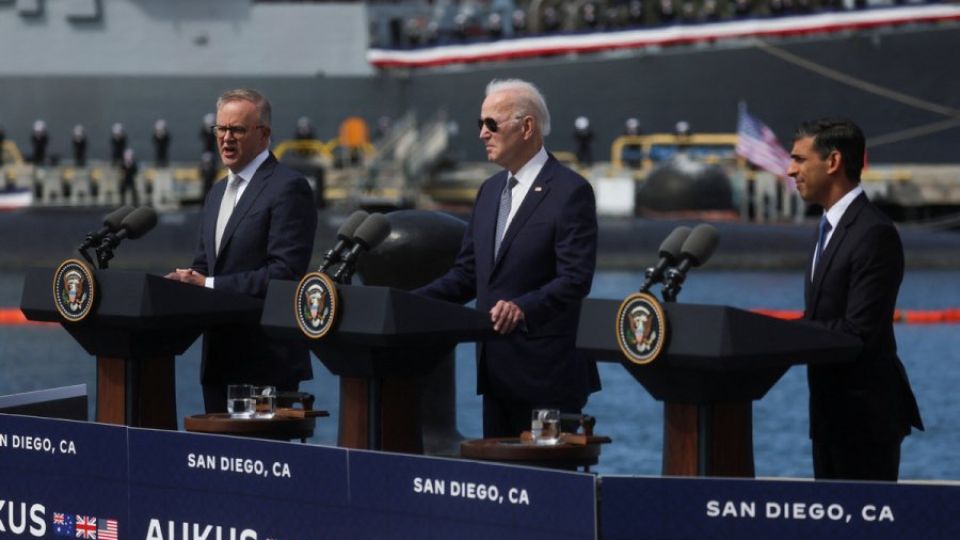March 16, 2023
BEIJING – In a move that makes it crystal clear that the United States is now so obsessed with its China phobia that it is speeding along a dangerous road that will put regional peace at jeopardy, Washington has accelerated the timeline for the sharing of a nuclear-propulsion technology for the first time since the 1950s, announcing that it will sell three Virginia-class nuclear-powered submarines to Australia, with an option for it to buy two more.
Australia’s acquisition of the nuclear-powered attack submarines, to be built by General Dynamics, is part of a multi-stage project under the AUKUS framework that is to culminate with the United Kingdom and Australia producing and operating a new trilaterally developed submarine based on the UK’s next-generation design. The vessels are to be built in the UK and Australia and will include “cutting edge” US technologies. The UK is due to take delivery of its first submarine in the late 2030s, while Australia would receive its first vessel in the early 2040s.
Addressing a ceremony at the US naval base in San Diego on Monday, accompanied by Australian Prime Minister Anthony Albanese and UK Prime Minister Rishi Sunak, US President Joe Biden called the agreement a demonstration of the three partners’ shared commitment to “a free-and-open Indo-Pacific region”, which is Washington-speak for containing China.
As Sunak noted, it means that for the first time ever, three fleets of (nuclear-powered) submarines will be working together with common cause.
But rather than “ensuring peace and stability” in the Asia-Pacific, the plan, which will cost up to $245 billion by 2055, “constitutes serious nuclear proliferation risks, undermines the international non-proliferation system, fuels an arms race, and hurts peace and stability”, as China’s permanent mission to the United Nations said in a tweet after the announcement.
The move is in open defiance to the grave concerns expressed by the international community over the danger of nuclear proliferation posed by the agreement among the members of AUKUS, and only serves to make Australia the vanguard in the proxy war that the US seems intent on waging against China on the pretext of the Taiwan question, as several US officials have already openly taunted.
The US and its allies should know exporting nuclear technology to a nuclear-free country is a blatant violation of the Treaty on the Non-Proliferation of Nuclear Weapons. With over 190 signatories worldwide, the NPT embodies the international community’s commitment to prevent the proliferation of nuclear weapons and promote cooperation in peaceful uses of nuclear energy.
Both Washington and London are signatories to the NPT, and Australia has joined both the NPT and the South Pacific Nuclear Free Zone Treaty. So, how can they go back on their non-proliferation commitments while urging others in the world, such as Iran and the Democratic People’s Republic of Korea, to give up their nuclear ambitions?
AUKUS countries should drop their double standard and respond to the international community’s concerns. They should fulfill their non-proliferation obligations and maintain candid and transparent communication with other countries on the basis of equality and mutual respect under the framework of the International Atomic Energy Agency.


